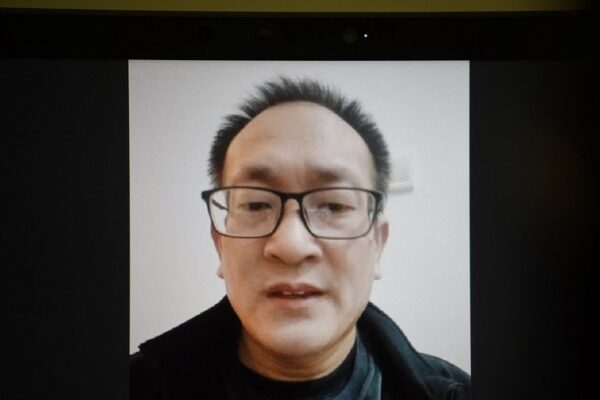
Albert del Rosario, who led the Philippines in landmark case vs China, dies
Albert del Rosario, the Philippines’ former top diplomat who successfully led the country in its international arbitration case over a territorial dispute with China in the South China Sea, died on Tuesday, his family said. He was 83. The Philippine case was considered groundbreaking because it marked the first time that any country had challenged China in a world court over its territorial claims in the waterway. His daughter, Dr. Inge del Rosario, confirmed the news to reporters, but did not disclose the cause of death. Other sources close to the family said the ex-foreign secretary died while on a flight to San Francisco. “The family of Ambassador Albert Ferreros del Rosario is deeply saddened to announce his passing today, April 18, 2023. The family requests privacy during this difficult time,” his daughter said. Foreign Affairs Secretary Enrique Manalo confirmed the news. He called del Rosario “an advocate of protecting and advancing national security and promoting the rights and welfare of Filipinos both in the Philippines and abroad.” “You will be missed, Mr. Secretary,” he said. Born in Manila on Nov. 14, 1939, del Rosario, a critic of former President Rodrigo Duterte’s foreign policies – particularly in dealing with China – served as the Philippine foreign affairs chief under late President Benigno Aquino III, from 2011 until 2016. While heading the Department of Foreign Affairs, del Rosario spearheaded the Philippines’ legal battle against China before the Permanent Court of Arbitration in The Hague, Netherlands over a territorial dispute in the West Philippine Sea. The Philippines brought the case before the court in 2012. In July 2016, the arbitration court ruled in favor of the Philippines, and threw out China’s expansive claims in the sea, including in waters that reach its neighbors’ shores. The Philippines calls the part of the South China Sea that is within its territory the West Philippine Sea. Activists who traveled to the contested Scarborough Shoal and were blocked by the Chinese coast, react after a ruling on the South China Sea by an arbitration court in The Hague in favor of the Philippines, at a restaurant in Manila, July 12, 2016. Credit: Erik De Castro/Reuters The Chinese, however, ignored the landmark ruling, even as most countries in the West, led by the United States, hailed the award in the Philippines’ favor. Since then, China has carried on with its military expansionism in the strategic waterway, including building artificial islands. But President Duterte, who took office within a month before the historic ruling, played it down and chose instead to build up warm bilateral relations with China. Late into his presidency, however, he told the United Nations General Assembly that the arbitration court’s ruling was “beyond compromise” and part of international law. The Philippines not only lost a patriot “but an esteemed diplomat who represented our country with utmost grace, honor, and dignity,” Sen. Risa Hontiveros said in paying tribute to del Rosario. His “leadership inspired in us the courage and the creativity to fight for our national interest using lawful and diplomatic means. Defending and protecting our rights in the WPS is an intergenerational battle, one we can win because of the work Sec. del Rosario started,” Hontiveros said in a statement, referring to the West Philippine Sea. Philippine Foreign Secretary Albert del Rosario, who spearheaded the filing of a complaint against China, attends a hearing regarding the Philippines and China on the South China Sea, at the Permanent Court of Arbitration at The Hague, the Netherlands, Nov. 24, 2015. Credit: Permanent Court of Arbitration via AP Jose Antonio Custodio, a military historian at the Institute of Policy, Strategy and Development Studies, a Philippine think-tank, described Del Rosario as “a brave man” who had endured public insults from Duterte. “He was a hero of the republic for successfully fighting against China’s illegal claims in our maritime entitlements. May his memory be a blessing,” Custodio said. The think-tank Stratbase ADR Institute, where del Rosario served as chairperson, said the former foreign affairs chief championed “democratic values and rules-based international order.” “He has fought for an independent foreign policy that prioritizes the interests of the country and of the Filipino people. He believed that diplomacy is a great equalizer in international affairs and that each state had an equal voice in the global community regardless of their political, economic, or military capabilities,” the institute said. Jeoffrey Maitem and Jojo Riñoza contributed to this report from Manila. BenarNews is an RFA-affiliated news organization.






